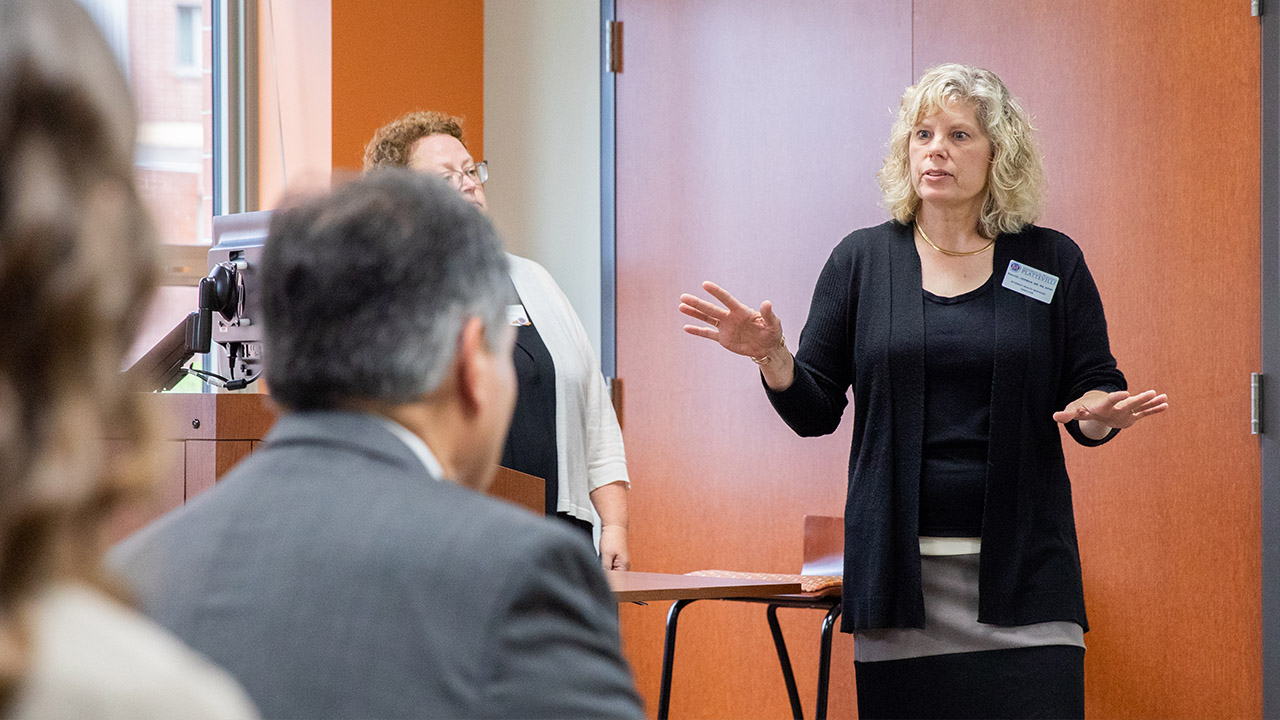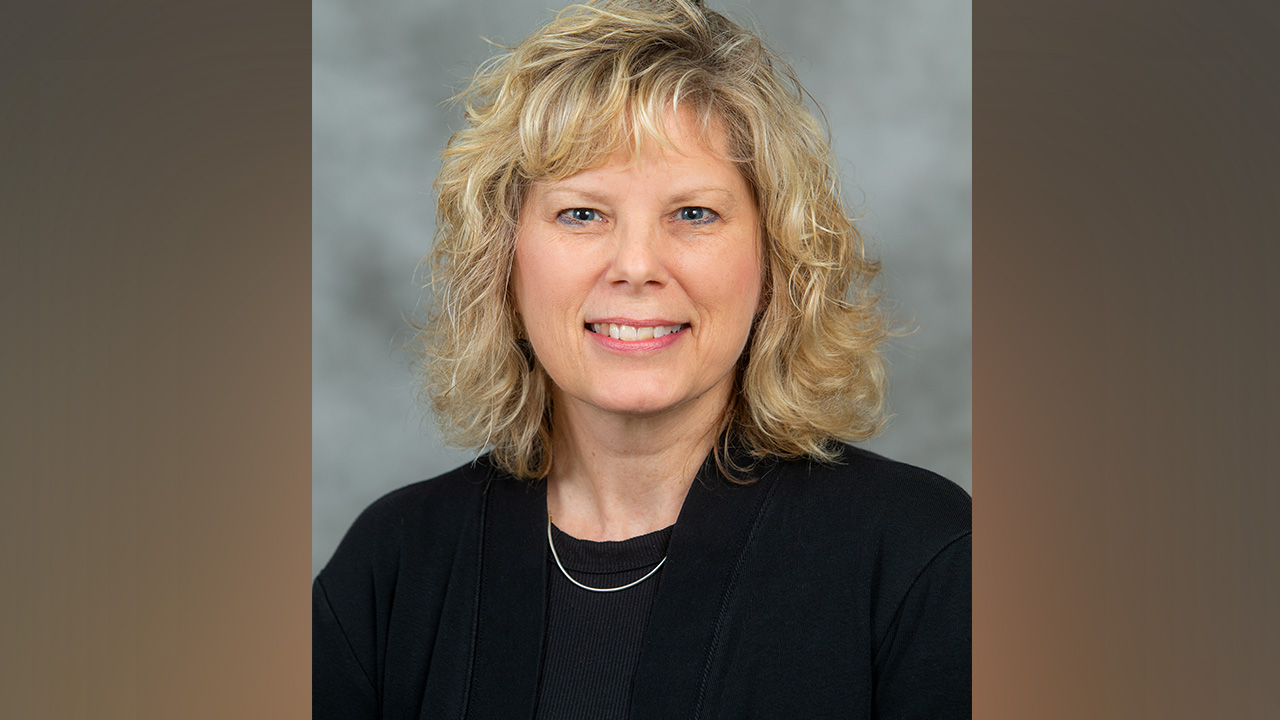

When Rachel Herman, the University of Wisconsin-Platteville administrative director of Student Health Services, had her first request for a mask to combat COVID-19 in January, she immediately thought of an iconic Hollywood scene.
“It's right up there with that line from the movie, ‘Jaws.’ ‘We're gonna need a bigger boat,’" she said. “We were going to need more PPE (personal protection equipment).”
Herman is a board-certified pediatric nurse practitioner who counts public health infectious disease among her expertise. She has been instrumental in not only offering leadership to the UW-Platteville Emergency Operations Center team but also to the UW System, as her pandemic planning was used as a blueprint for the 170,000 students across the state.
Quicker than almost anyone at the university, Herman recognized just how big of an issue COVID-19 was going to present to higher education.
“The level of intensity felt like a combination of hospital intensive care and the early days after 9/11,” she said.
The EOC carefully monitored the events throughout the spring until recommending making the switch from face-to-face classes to alternative delivery on March 13 for the rest of the spring and ultimately the summer. UW-Platteville’s decision-making was made easier by the pandemic plan Herman helped develop.
“The university's emergency operations plan has a section focused on health emergencies. The plan is flexible to address the threat, whether it be measles, influenza or other illnesses,” Herman said. “Credit goes to (University Police Sergeant) Jason Williams for his extensive work on the overarching plan. I was just a contributor to the health emergencies section. Infectious disease is inherent in working in healthcare. My public health experience was during the early days of HIV and AIDS and taught me how to approach surveillance, investigation and tracking.”
Like any new issue, COVID-19 has left Herman and other health officials scrambling to stay on top of the ever-changing information.
“I review numerous professional, data-driven sources such as local and state Public Health, Centers for Disease Control, World Health Organization sites plus as many of the new research reports and professional webinars as possible,” she said. “The studies that are being done on COVID-19 not only are in active original research mode but are receiving real-time continuous meta-analysis. It's fascinating.”
Herman and the rest of the university leadership are developing guidelines for how and when UW-Platteville can return to face-to-face activities.
“A common sense approach that is based upon current data will guide us in returning face-to-face. We know more about COVID-19 and which groups are more at risk for complications. Getting sick is never ideal, but having a robust immune system can be quite protective. With that in mind, every single person in our campus community can work on their own immunity by seeking balanced nutrition, exercising regularly, caring for their mental and spiritual health and getting adequate sleep,” she said. “Having a healthy infrastructure is like having a great foundation for a house. It can weather a lot of storms.”
All university updates may be found at https://www.uwplatt.edu/news/update-coronavirus